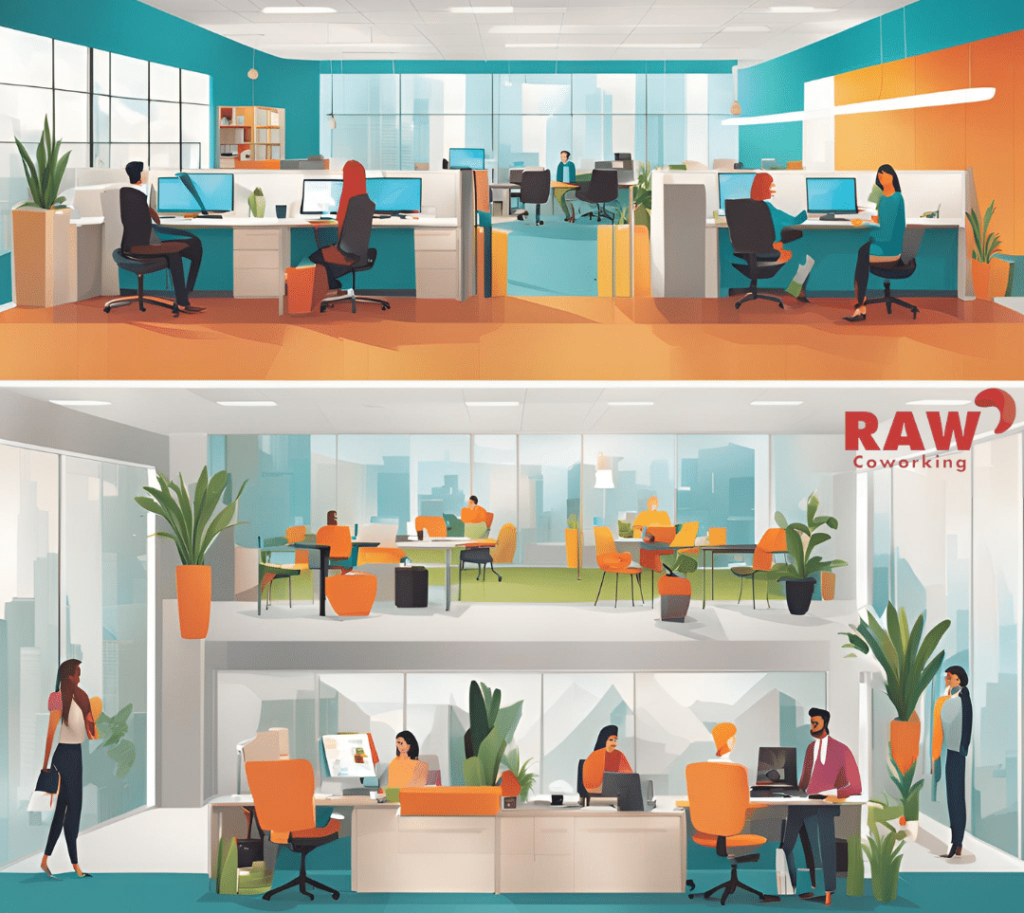Coworking Spaces vs. Traditional Offices: A New Era of Workplaces

The traditional 9-to-5 office model is undergoing a significant transformation. With the rise of remote work and the increasing demand for flexible workspaces, coworking spaces have emerged as a popular alternative to traditional offices. In this blog post, we’ll delve into the key differences between coworking spaces and traditional offices to help you decide which option is best for your business.

